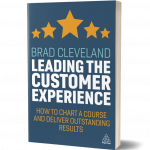We all spend a high percentage of our waking hours working. For most of us, the primary reason is very practical: we require the means to buy the things we need and want. So, in a very real way, work is something we have to do. In that sense, it can carry  a negative connotation. I have to go to the dentist. I have to get my car inspected. But we all know people, and hopefully you and I are among them, who LOVE the work they do. “I flunked retirement,” as a friend of mine in his 70s put it when I asked him why he was going back to work. I’m pretty sure he’s fortunate enough to not need the income. “I really missed being part of the action,” he said.
a negative connotation. I have to go to the dentist. I have to get my car inspected. But we all know people, and hopefully you and I are among them, who LOVE the work they do. “I flunked retirement,” as a friend of mine in his 70s put it when I asked him why he was going back to work. I’m pretty sure he’s fortunate enough to not need the income. “I really missed being part of the action,” he said.
In Why We Work, Barry Schwartz summarized three ways we can relate to work: work as a job, work as a career, or work as a calling.
- Those who view work as a job mainly see it as a paycheck. They don’t receive any kind of reward or fulfillment beyond salary and benefits.
- Those who view work as a career have a higher level of motivation—they want to get better at what they do, take on new responsibilities, and move up in the organization.
- Those who view work as a calling are the most motivated—they understand how the work they do makes a positive difference for others.
The lost jobs and turbulence Covid-19 created likely shook these perspectives up—for a season. Many employees were happy to have, keep, or find work. But as we returned to a sense of normal, fulfillment once again emerged as fundamentally important. Work can and should be fulfilling, both professionally and personally. The underpinning of true employee engagement starts with a perspective: knowing that the work is important, that it is worthwhile. So, a secret to creating an engaging environment is to establish the connection between what your employees do and how it impacts others.
Excerpt from Leading the Customer Experience: How to Chart a Course and Deliver Outstanding Results by Brad Cleveland.
